It is every Oud learner’s dream to study with world famous professional Oud players. Yet many of us only get to see these Oud masters in person at their concerts if they ever come into our town, and getting personal advice and their secrets from them seems like another dream.
To help all Oud learners out there with similar urge to listen to renowned Oud masters’ words of wisdom, I decided to approach some of them myself. I asked each Oud player 2 questions that I thought would apply to many of you:
1. What is the one most important piece of advice you would give to Oud learners, especially non-middle easterners?
2. Why do you play middle eastern music? What do you love about the Oud in particular?
I just can’t thank these Oud masters enough for their generosity in taking the time out of their busy lives to answer these questions at length. Each response shows the players’ unique background and passionate beliefs, and it is also nice to see commonalities throughout the comments. I highly recommend you explore some of their work on their websites, which I included for each player.
Hope you get inspired by these words of wisdom as much as I did.
Oud Masters (In no particular order)
Wissam Joubran
1. What is the one most important piece of advice you would give to Oud learners, especially non-middle easterners?
“If you allow me, I would make the first question more precise:
What is the most important piece of advice I would give to Oud learners to play?
What is the most important piece of advice I would give to Oud learners to listen to?
To be honest, If I answer the both questions by giving you a tune to listen or to play, I won’t be fair. Unfortunately, today we are living in a very strange way. Everything we want we need to get it quickly and choose from many colors but one color.
In my opinion, you can’t paint on a white paper with white color!
As you mentioned in your website, there are many styles. Each style is very important because it’s different than the other. Before to play the Oud we have to listen, listen and listen… Listening to our self is important as well, because improvisation is one of the most important elements for the Oud. Improvisation is coming from a background, from something you have seen or listened to. I am sorry if I didn’t answer the way you were expecting, but this is my own belief. We could still speak about this subject for days.
To make a small conclusion to the beginners and for learners: Try to listen as much as you can, but not too much.”
2. Why do you play middle eastern music? What do you love about the Oud in particular?
“I have many reasons why I play the Oud. I am coming from a family with a rich artistic heritage. I was born while my father Hatem Joubran makes the Ouds, he is considered the third generation in the Joubran Family that create this instrument. My eldest brother Samir Joubran plays the Oud and decided to be a professional Oud player. In other words, the Oud became a member of our family, one that we can’t avoid. Thanks to this environment it helped and gave me a lot of inspiration.
I spent my childhood with my father in the workshop and continue my studies in Antonio Stradivarius Institute in Italy. Today I am the fourth generation in the Joubran family, making string instruments and an Oud Player. I am giving all my time to this instrument because today I feel more responsibility than before.
The story of the family is much larger than that, I advise you to search a little more through my website and the website of “Le Trio Joubran”.
Personally, I am in love with the Oud because I consider it as my child knowing that I created it. It is part of my body. I find that It has a very close sound to the human voice. When I play the Oud I feel free, comfortable, giving my heart positive vibrations, expressing my feeling in an honest and better way!”
Najeeb Shaheen
1. What is the one most important piece of advice you would give to Oud learners, especially non-middle easterners?
“My advice to westerners coming into the world of oud is:
#1 get away from floating bridge & the high F string, that is for clowns, even though Qassabji & Sumbatti used the high F occasionally, but never used the high F in their studio recordings, I.e Sumbatti oud taqaseem.
#2 do not start teaching micro tonal modes. That should come at least 6 months to a year after the first lesson. But you should encourage your students to listen to music in micro tonal modes, bayati, rast , huzam & others. I do advise people to study classical guitar, it is a great help, it helps in training the independence of the left hand fingers, the right and left hand coordination. Be well & get away from the clowns. In the age of ignorance, mediocracy prevails.”
2. Why do you play middle eastern music? What do you love about the Oud in particular?
“I play the oud because my father was an oudist, and so his father and his grandfather. And don’t forget Simon Shaheen, unequal to his greatness, an inspiration to keep me going.“
Rahim Alhaj
1. What is the one most important piece of advice you would give to Oud learners, especially non-middle easterners?
“First of all for anyone, you need to be serious about studying music. And the second is you have to love it, enough to practice a lot of time. Learning an instrument it has to come with discipline, so if you’re not disciplined it’s not going to work, probably you can learn here and there but it’s not going to go anywhere if you’re not being serious. You have to be disciplined to practice between 4 to 6 hours a day until you get what you want to get from the instrument. This instrument cannot give you anything unless you spend time with it. That is the secret to learning any instrument, the discipline and the love for the instrument. You have to practice 6-8 hours a day and listening to the music, you have to listen to the music a lot, especially for a new player.”
2. Why do you play middle eastern music? What do you love about the Oud in particular?
“It comes from the age when I was a kid. What is fascinating about this instrument is that you have to hold it, you have to hug it to be able to play it. It has a kind of natural sound equivalent to our voice. It goes very well with it. And the deepness of this instrument, it’s a very deep instrument. It’s not high, it’s not mellow like bass, it’s in the middle, and that’s how we talk and that’s how we sing.
To be honest I’m obsessive about this instrument, and for me there’s no choice other than to be a musician. You must have no choice, except to being that, otherwise you’re going to be doing something else. So we have to accept it and be compelled by this instrument, to be able to maintain this relationship with it otherwise it kind of goes away with life, you get busy, you need to make a living and then it’s going to fade away somehow. So you have to have a very strong connection and relationship with this instrument to make you able to continue your journey with it.”
Ross Daly
1. What is the one most important piece of advice you would give to Oud learners, especially non-middle easterners?
“The most important thing for Oud players from either east or west is to listen continuously to good oud players. Reading Makam theory and other such pursuits are of limited value. Listening to good players and absorbing repertoire are the most important things. Make sure you listen to good players who do everything they can to highlight the music itself. Don’t be fooled by showy and often hollow virtuosi who make a point of showing off technique in the form of speed all the time. Real music is another matter.”
2. Why do you play middle eastern music? What do you love about the Oud in particular?
“I play Middle Eastern music simply because I love it. Any other reason is not only superfluous, it would actually be a hindrance.”
Edward Powell
1. What is the one most important piece of advice you would give to Oud learners, especially non-middle easterners?
“First piece of advice is listen listen listen (also watching videos) of quality oud and middle-eastern music. Be very sure to get your technique perfect right from the start and don’t get into bad technical habits because they can be impossible to un-learn later. Always practice in front of a mirror and keep an eye on your technique – always asking yourself “does this look relaxed and natural?”.
Practice very hard but never overdo-it. Never “push” the physical limits of your hands and body – if you ever experience ANY pain, immediately stop until the pain goes away… NEVER HAVE THE ATTITUDE OF “play THROUGH the pain!”. Your body is fragile.”
2. Why do you play middle eastern music? What do you love about the Oud in particular?
“I love the tone and intonation and FEELING of oud the most. It is difficult to describe, but oud was one of those instruments that I instantly knew, upon hearing for the first time, that I would need to learn it. Oud and Sarod are my most favorite instruments – and I think both are very closely related but oud is deep and warm, and sarod is bright and brilliant.”
These were not the only Oud masters I contacted. If any more decide to contact me in the future, I may write another article and add their quotes. I thought it would be best not to interpret their own words much, and let them speak for themselves. I hope everyone picked up on the similarities and common themes here.
A very big thanks to those who contributed to this article.

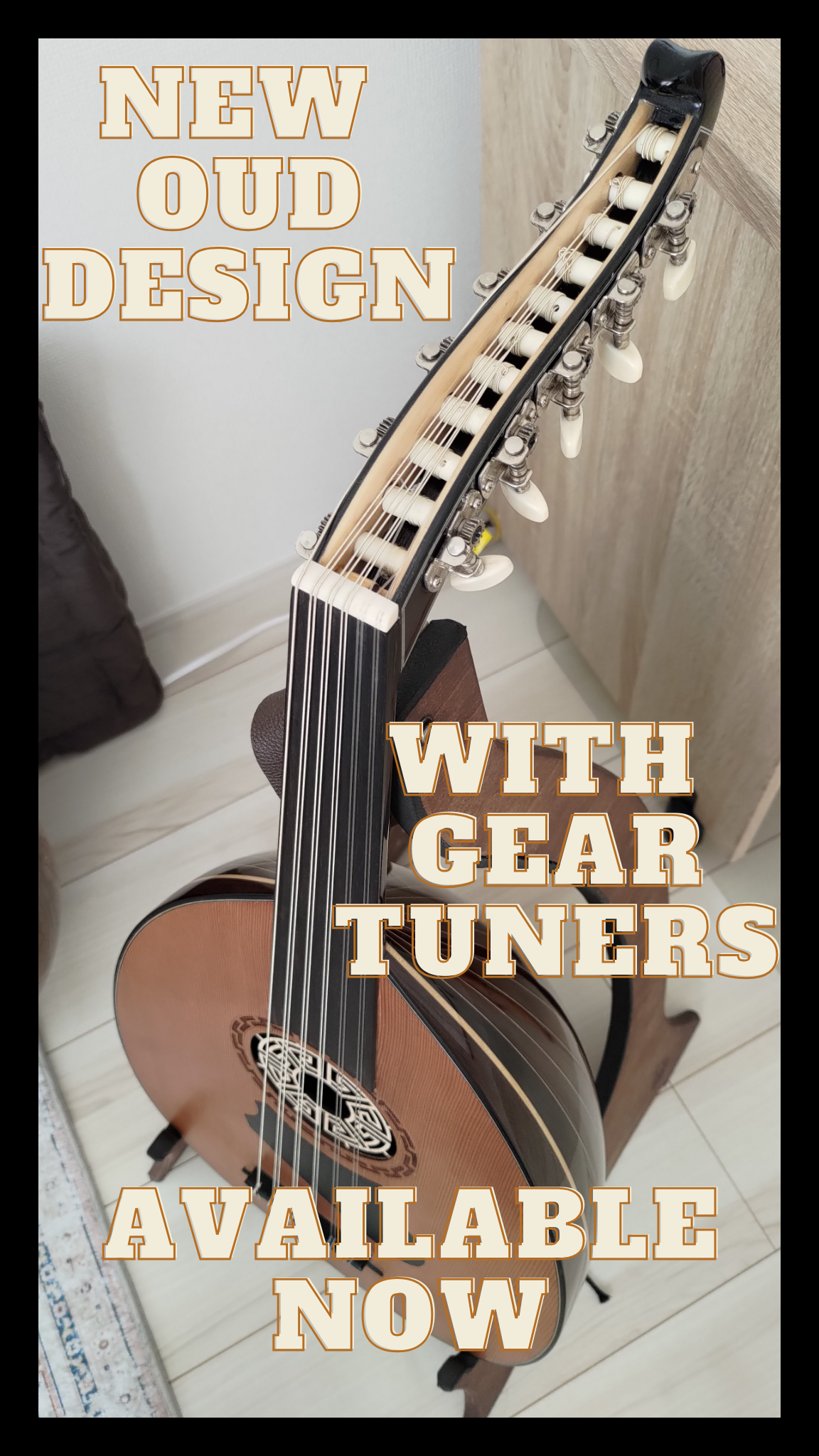
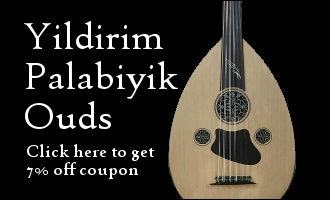
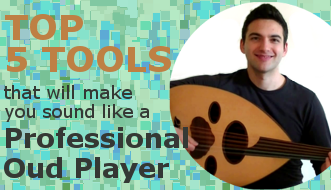
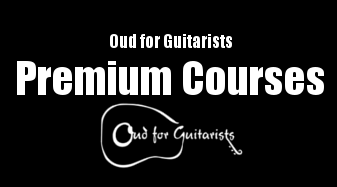
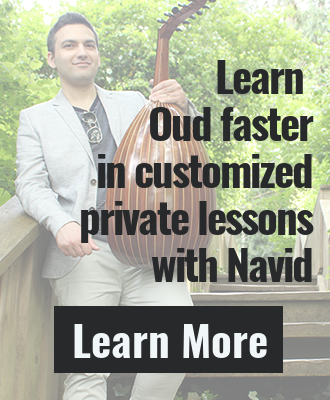
Thank you for the reaching out to these players to get their thoughts. The main takeaway for me is to keep listening in order to really absorb the musicals it’s ornaments, sound quality, repertoire etc and to continually try to emulate it. I play several instruments and styles of music and this is the path that has also served me well in learning new instruments and musical styles. There re amazing tools out there for this, such as Transcribe!
Almost forgot the other main takeaway…don’t play that high F string to avoid being a clown! 🙂
There are some very interesting parallels happening throughout this article, and I’m glad people are picking up on it.
The F string thing is a very funny comment. Utilizing a high F string on the Oud is a bit superfluous in my opinion. Most Oud music doesn’t require surpassing more than 2 or 3 octaves.
I just found out about Transcribe myself. I would have loved to have this kind of software years ago!
Thanks for your comment!
Very cool reading… Im taking the i3zif Oud course now, I think at one point they said, “In about 14 years, youll be good” My jaw dropped. Of course this is reasonable though! I just started about 4 months ago and I get frustrated Im not sight reading and playing Lamma Bada Yatathanna after 20 tries. Totally unrealistic! Im trying to break the habit of ‘learning things immediately’. 6-8 hours a day! This is hard. I have 3 kids! I fit it in when I can though and am still making progress! I have about 5 songs I can play (not well, but just play) Im posting my progress on youtube as well (the good and the bad). Cheers!
That’s awesome. Yes, do what you can, and do it for fun…